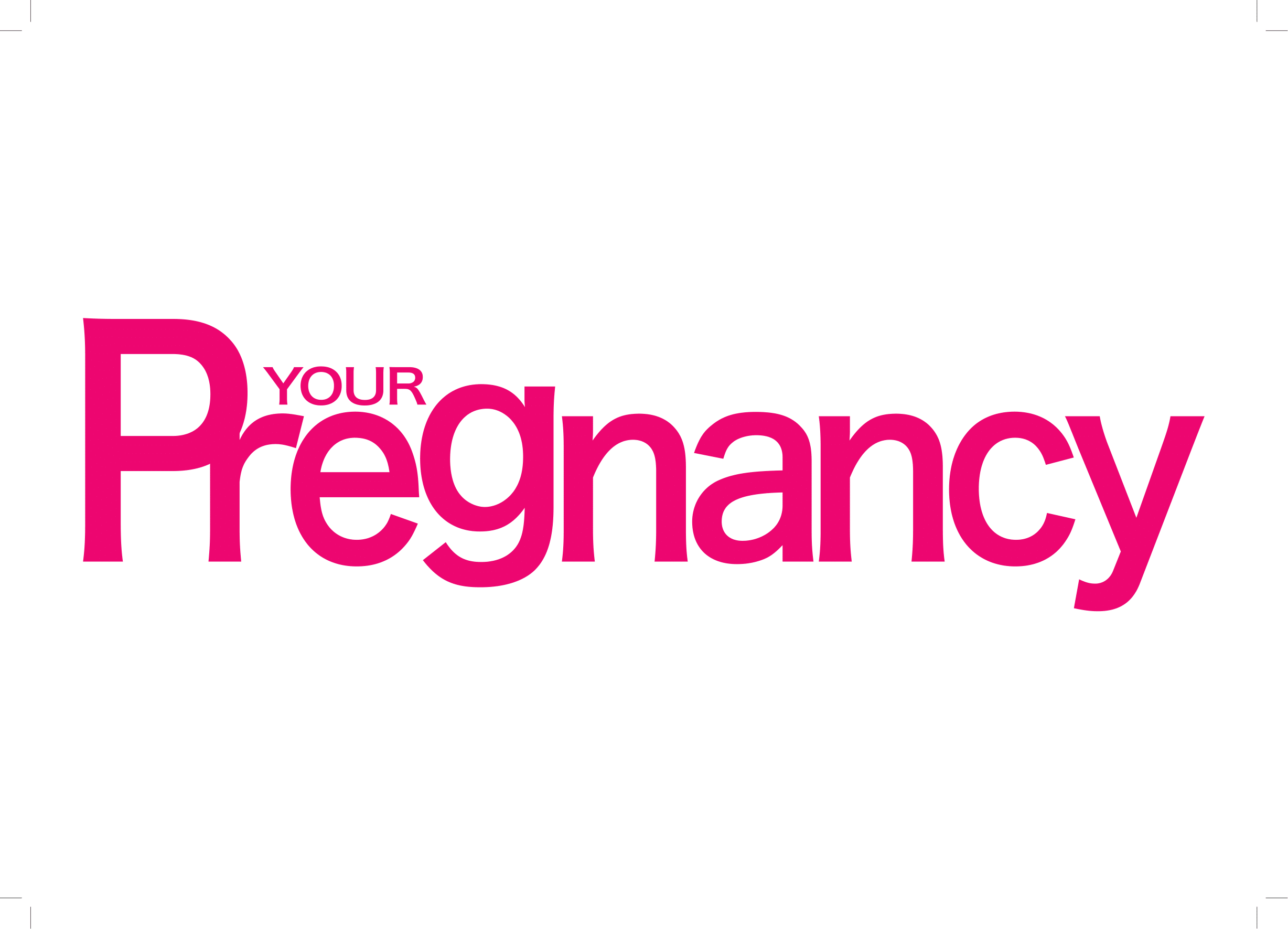
Symptoms to watch out for:
Bad headaches
There are a number of reasons why you suffer from headaches when you are pregnant, from pregnancy hormones affecting your blood vessels, to low blood sugar or dehydration.
Headaches can also be a symptom of something more sinister, like high blood pressure. If your headache is accompanied by swollen hands, feet and blurred vision, you may be suffering from pre-eclampsia. Notify your caregiver.
Bleeding
Spotting is fairly common in early pregnancy, but you should always advise your caregiver. Bleeding may be due to an implantation bleed or due to vascular changes in the cervix.
Continuous heavy bleeding before 12 weeks may indicate a threatened miscarriage. After 12 weeks, bleeding can indicate placental problems. Always check with your doctor if the blood flow is heavier than that of a period.
Swollen ankles
Your body carries more extra cellular fluid during pregnancy and this can cause normal swelling of the feet and ankles that subsides once you put your feet up, which means you need to rest more.
If the swelling is sudden and severe, affecting the face, hands and legs, it could be a sign of pre-eclampsia. This should be checked out by your doctor immediately
Nausea and vomiting
Both are common during pregnancy, especially in the first 3 months. This is nature’s way of protecting your baby from any unsafe foods or chemicals. If this persists and you can’t keep anything down, you may need to be admitted to hospital. Severe vomiting is known as hyperemesis gravidarum and can cause dehydration.
Always thirsty
It is common to become thirsty during pregnancy, due to the changes in metabolic functions and the fact that you are getting rid of waste for 2. Make sure you drink around 2 litres of water a day.
If you are constantly thirsty and hungry, you urinate all the time and feel tired you may be suffering from gestational diabetes. Your doctor will test for this and it can be controlled through diet and exercise. Gestational diabetes often resolves itself once the pregnancy is over.
Breathlessness
Your oxygen consumption increases in pregnancy and as your pregnancy progresses, your lungs and your diaphragm move, by as much as 4cm. In your last trimester, walking and even talking can make you breathless.
Breathlessness in early to mid-pregnancy may be a sign of anaemia.
Fatigue
Fatigue in the first trimester is normal. Give in to these feelings and rest as much as you can. Fatigue is also common in the last trimester when you are feeling heavy and the weight of pregnancy is really taking its toll. Extreme fatigue is often a sign ofanaemia, which is very likely to occur in pregnancy. Rest and taking prescribed supplements is recommended.
Itchy skin
Your skin has to stretch over your growing baby, and this is often itchy. Massage your belly with a little oil and lotion to alleviate the itchiness.
Intense itching with raised areas or bumps may be a sign of a more serious condition known as obstetric choleostasis. This is more likely to occur in late pregnancy. If you suspect you have this, contact your caregiver as this can be life-threatening to your baby.
Early contractions
It could beBraxton Hicks (practice contractions) or the gentle warm up contractions that get your uterus ready for labour.
If you are less than 37 weeks and the contractions come at regular intervals, or you have had some other sign that labour is approaching, it could mean you are going into preterm labour. If you are concerned, get to the doctor immediately.
If you are close to your due date it could mean that labour has started.
Baby not moving
You are unlikely to feel your baby moving before 20 weeks in a first pregnancy.
If there is a sudden and dramatic change in your baby’s movements notify your caregiver immediately.
Ligament pain
The pregnancy hormone relaxinis responsible for the softening of all the ligaments in the pelvis. Ligament pain is often felt as a sharp, burning spasm in the pubic area. It can also be a sign of a strained round ligament.
If this pain is severe and doesn’t ease it can be a sign of something sinister, such as ectopic pregnancy, urinary tract infection, appendicitis or a problem with the placenta. Call your caregiver immediately.
Discharge
This is one of those niggles you really want to know about, but are generally not talked about. If you notice that you have a thin, whitish discharge – do not be concerned as this is completely normal.
But vaginal infections are more common during pregnancy, so don’t be embarrassed to talk to you doctor if you are concerned.
If the discharge is thick and you are itchy, it could be thrush. A fishy smell may indicate a bacterial vaginosis. Both these infections need to be sorted out as they can be passed onto your baby or can cause problems with labour.
A lot of watery discharge after 12 weeks could mean your waters have broken or may be an indication of premature (before 37 weeks) labour.




 Publications
Publications
 Partners
Partners














